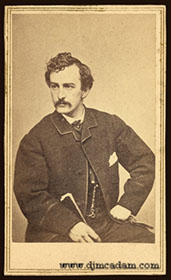A morning visit should be paid between the hours of two and four p.m., in winter, and two and five in summer. By observing this rule you avoid intruding before the luncheon is removed, and leave in sufficient time to allow the lady of the house an hour or two of leisure for her dinner toilette.
Be careful always to avoid luncheon hours when you pay morning visits. Some ladies dine with their children at half-past one, and are consequently unprepared for the early reception of visitors. When you have once ascertained this to be the case, be careful never again to intrude at the same hour.
A good memory for these trifles is one of the hallmarks of good breeding.
Visits of ceremony should be short. If even the conversation should have become animated, beware of letting your call exceed half-an-hour’s length. It is always better to let your friends regret than desire your withdrawal.
On returning visits of ceremony you may, without impoliteness, leave your card at the door without going in. Do not fail, however, to inquire if the family be well.
Should there be daughters or sisters residing with the lady upon whom you call, you may turn down a corner of your card, to signify that the visit is paid to all. It is in better taste, however, to leave cards for each.

Unless when returning thanks for “kind inquiries,” or announcing your arrival in, or departure from, town, it is not considered respectful to send round cards by a servant.
Leave-taking cards have P.P.C. (pour prendre conge) written in the corner. Some use P.D.A. (pour dire adieu).
It is not the fashion on the Continent for gentlemen to affix Monsieur to their cards, Jules Achard, or Paolo Beni, looks more simple and elegant than if preceded by Monsieur, or Monsieur le Comte. Some English gentlemen have adopted this good custom, and it would be well if it became general.
Autographic facsimiles for visiting cards are affectations in any persons but those who are personally remarkable for talent and whose autographs, or facsimiles of them, would be prized as curiosities. A card bearing the autographic signature of Charles Dickens or George Cruikshank, though only a lithographic facsimile, would have a certain interest; whereas the signature of John Smith would be not only valueless, but would make the owner ridiculous.
The visiting cards of gentlemen are half the size of those used by ladies.
Visits of condolence are paid within the week after the event which occasions them. Personal visits of this kind are made by relations and very intimate friends only. Acquaintances should leave cards with narrow mourning borders.
On the first occasion when you are received by the family after the death of one of its members, it is etiquette to wear slight mourning.
When a gentleman makes a morning call, he should never leave his hat or riding-whip in the hall, but should take both into the room. To do otherwise would be to make himself too much at home. The hat, however, must never be laid on a table, piano, or any article of furniture; it should be held gracefully in the hand. If you are compelled to lay it aside, put it on the floor.
Umbrellas should invariably be left in the hall.
Never take favorite dogs into a drawing-room when you make a morning call. Their feet may be dusty, or they may bark at the sight of strangers, or, being of too friendly a disposition, may take the liberty of lying on a lady’s gown, or jumping on the sofas and easy chairs. Where your friend has a favorite cat already established before the fire, a battle may ensue, and one or other of the pets be seriously hurt. Besides, many persons have a constitutional antipathy to dogs, and others never allow their own to be seen in the sitting-rooms. For all or any of these reasons, a visitor has no right to inflict upon his friend the society of his dog as well as of himself.
If, when you call upon a lady, you meet a lady visitor in her drawing-room, you should rise when that lady takes her leave, and escort her to her carriage, taking care, however, to return again to the drawing-room, though it be only for a few minutes, before taking your own leave. Not to do this would give you the appearance of accompanying the lady visitor; or might, at all events, look as if the society of your hostess were insufficient to entertain you when her friend had departed.
If other visitors are announced, and you have already remained as long as courtesy requires, wait till they are seated, and then rise from your chair, take leave of your hostess, and bow politely to the newly arrived guests. You will, perhaps, be urged to remain, but, having once risen, it is always best to go. There is always a certain air of gaucherie in resuming your seat and repeating the ceremony of leave-taking.
If you have occasion to look at your watch during a call, ask permission to do so, and apologize for it on the plea of other appointments.
*******
This is taken from The Laws of Etiquette.
Copyright © D. J. McAdam· All Rights Reserved